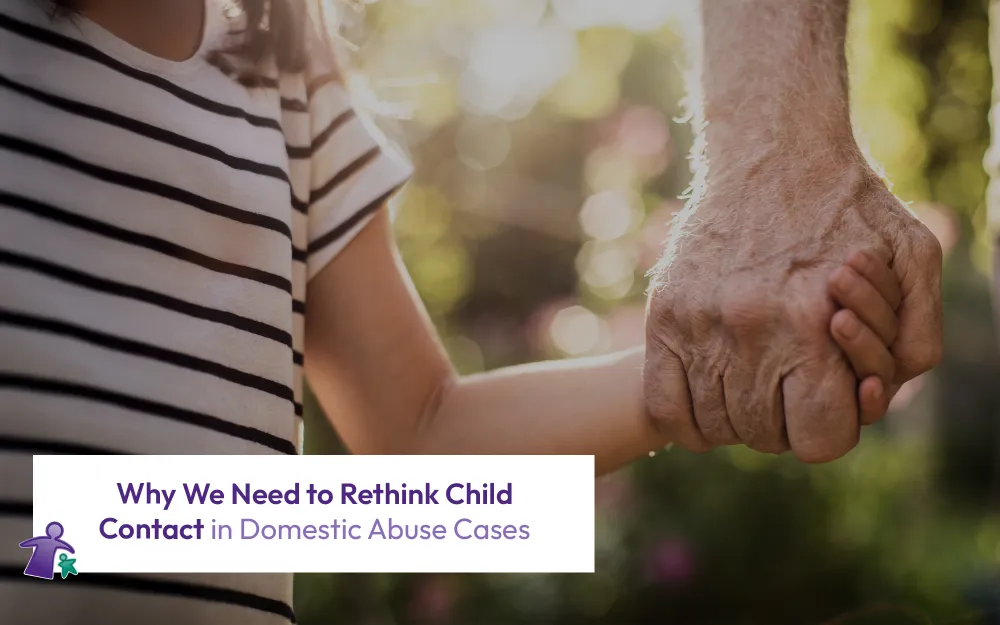
A new report from Women’s Aid, called “Nineteen More Child Homicides” brings attention to a deep worrying issue: children being put in danger through unsafe contact with a parent who is an abuser. It’s a difficult subject, but one that demands urgent action if we want to stop more heartbreaking losses.
What the Numbers Tell Us
The report reveals something deeply troubling. In just the past nine years, 19 children have been killed by a parent who was also a perpetrator of domestic abuse - and these tragic deaths happened in situations linked to unsafe child contact. Stretch that timeline back 30 years, and the number rises to 67 children.
What makes this even more painful is that these deaths were avoidable. Women’s Aid points to a system that often puts the wishes of abusive parents ahead of the safety of their children. It’s a reminder that, in some cases, decisions about child contact don’t fully take into account how dangerous these parents can be.
A big part of the problem is a lack of awareness about certain types of abuse - especially coercive control. This kind of abuse is often hidden, focusing on manipulation and control rather than physical violence, but it can be just as harmful. Unfortunately, the report shows that courts and professionals sometimes underestimate these risks of give too much leeway to perpetrators.
How Abuse Plays Out in Child Contact
The report gives us a glimpse into what many children face in unsafe contact situations. For children old enough to understand, abusive parents can often use coercive behaviours to keep them from getting help or talking about what’s really happening. Some children couldn’t get the medical support they needed, or they were stopped from speaking to social workers and other professionals alone.
It’s not just the children who are manipulated. Professionals working with families sometimes face the same controlling behaviour, with abusers insisting their actions come from a genuine desire to be with their kids. This can make it harder for those trying to protect children to see the truth.
Worryingly, many children never get the chance to share how they really feel about contact with an abusive parent, leaving them unheard and unprotected.
Why the Family Courts Must Change
This isn’t news to those who have been paying attention. Five years ago, the Ministry of Justice’s Harm Panel raised serious concerns about family courts’ ability to protect children from domestic abuse, calling for urgent reform. But too many of those recommendations have yet to be put into practice.
Women’s Aid is calling for those reforms to be fully implemented - including repealing the legal presumption that contact with both parents is automatically in the child’s best interests unless proven otherwise.
Right now, the law assumes children should have contact with both parents unless there’s clear evidence it’s unsafe. While that makes sense in many situations, it can put children in danger when one parent is abusive. Removing this automatic presumptions would mean courts would need to prioritise the child’s safety and feelings in every case.
Women’s Aid also calls for better training for everyone involved in family court processes so they fully understand the impact of domestic abuse on children and families.
Why This Matters to All of Us
Every child deserves to feel safe and protected. When the family justice system doesn’t put children first, the consequences can be tragic.
At Leeway, we see the real impact of domestic abuse on children every day. Abuse isn’t always visible - it can be emotional, psychological, or controlling. Unsafe contact arrangements aren't just a legal issue; they affect children’s wellbeing and in, in the worst cases, their lives.
This report is a clear call for change - not just from courts and government, but from all of us who care about children’s safety.
What Needs to Happen Next
Fixing this won’t be easy. It means:
These steps can help create a system that truly protects children and prevents needless harm.
Looking Forward
The report from Women’s Aid shines a much-needed spotlight on a serious problem. The question now is how quickly we act on it.
At Leeway, we remain committed to supporting children and families impacted by domestic abuse. We’ll continue working with survivors, professionals, and other organisations to push for safer, more compassionate family court processes.
Because every child deserves to be safe - not just in their home, but in every decision made about their future.